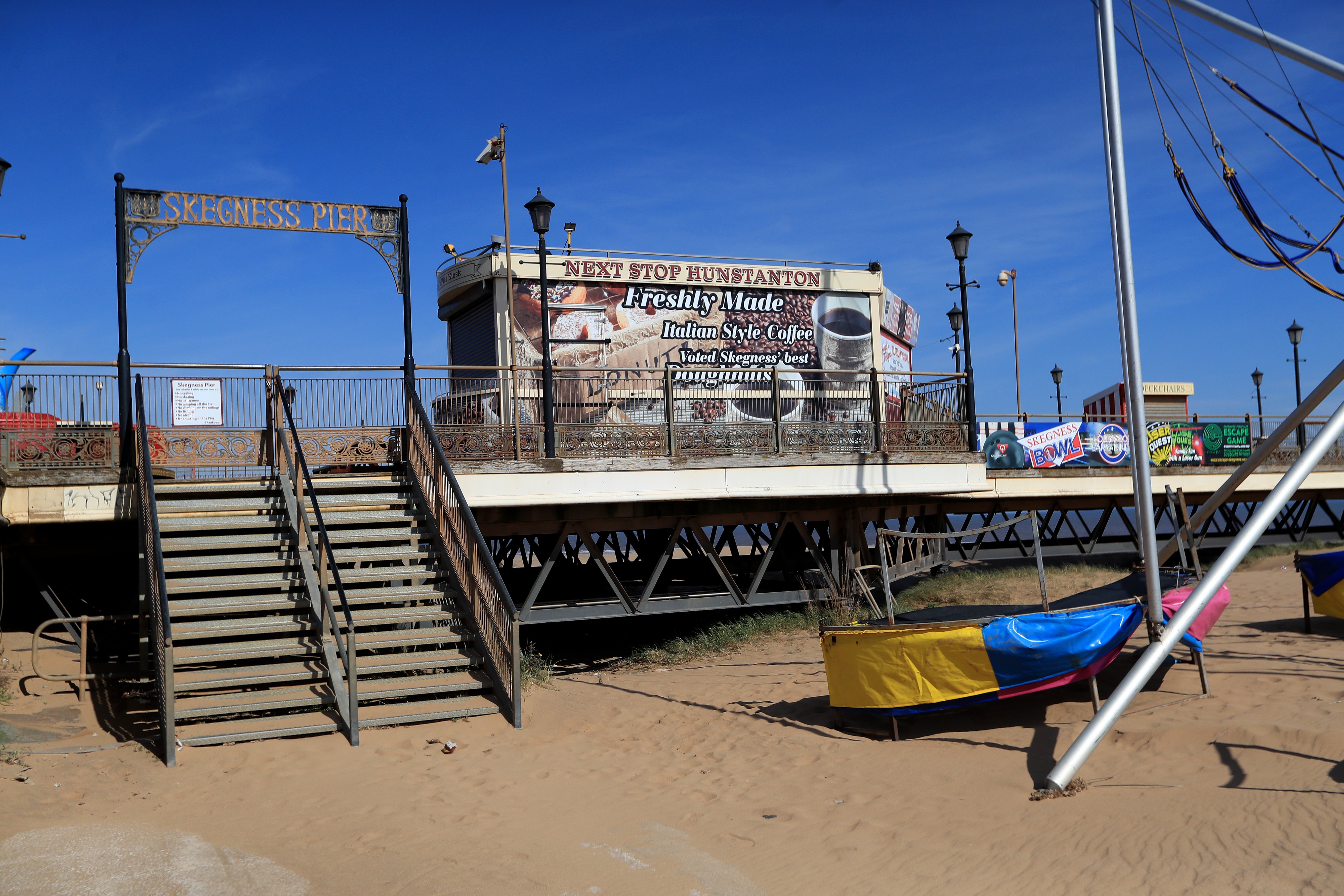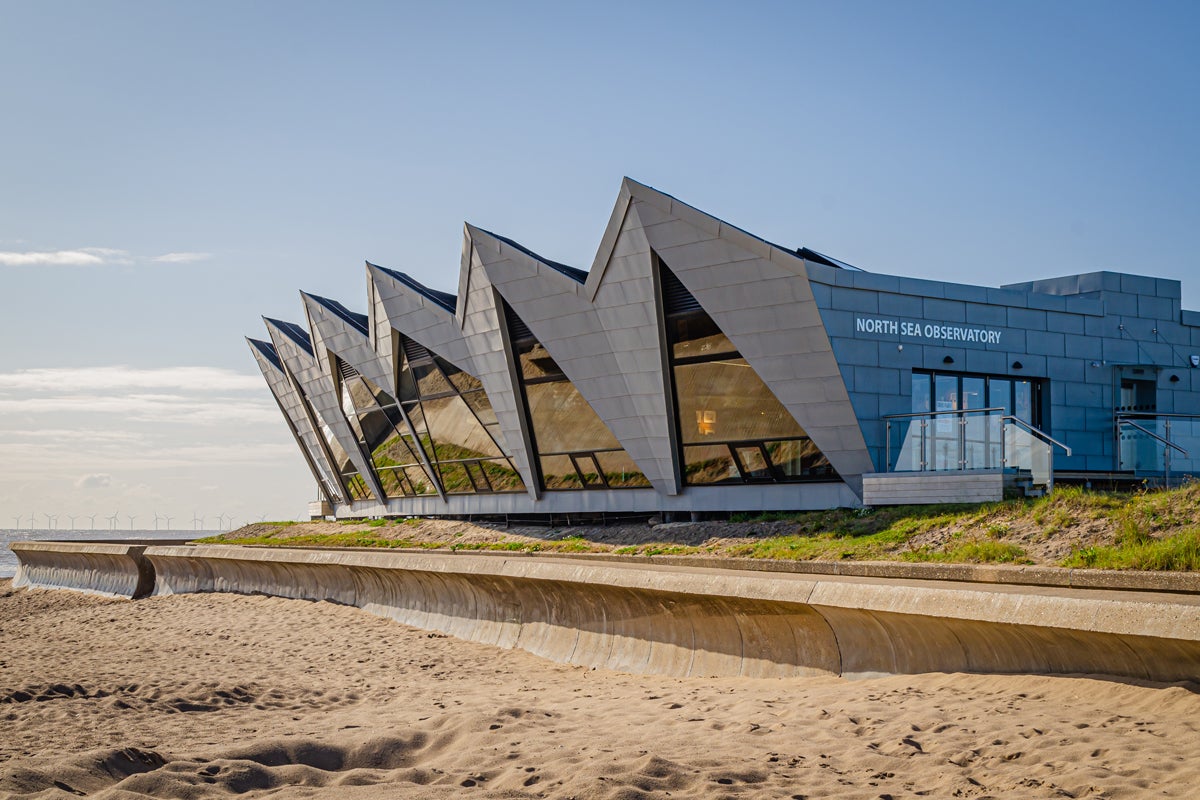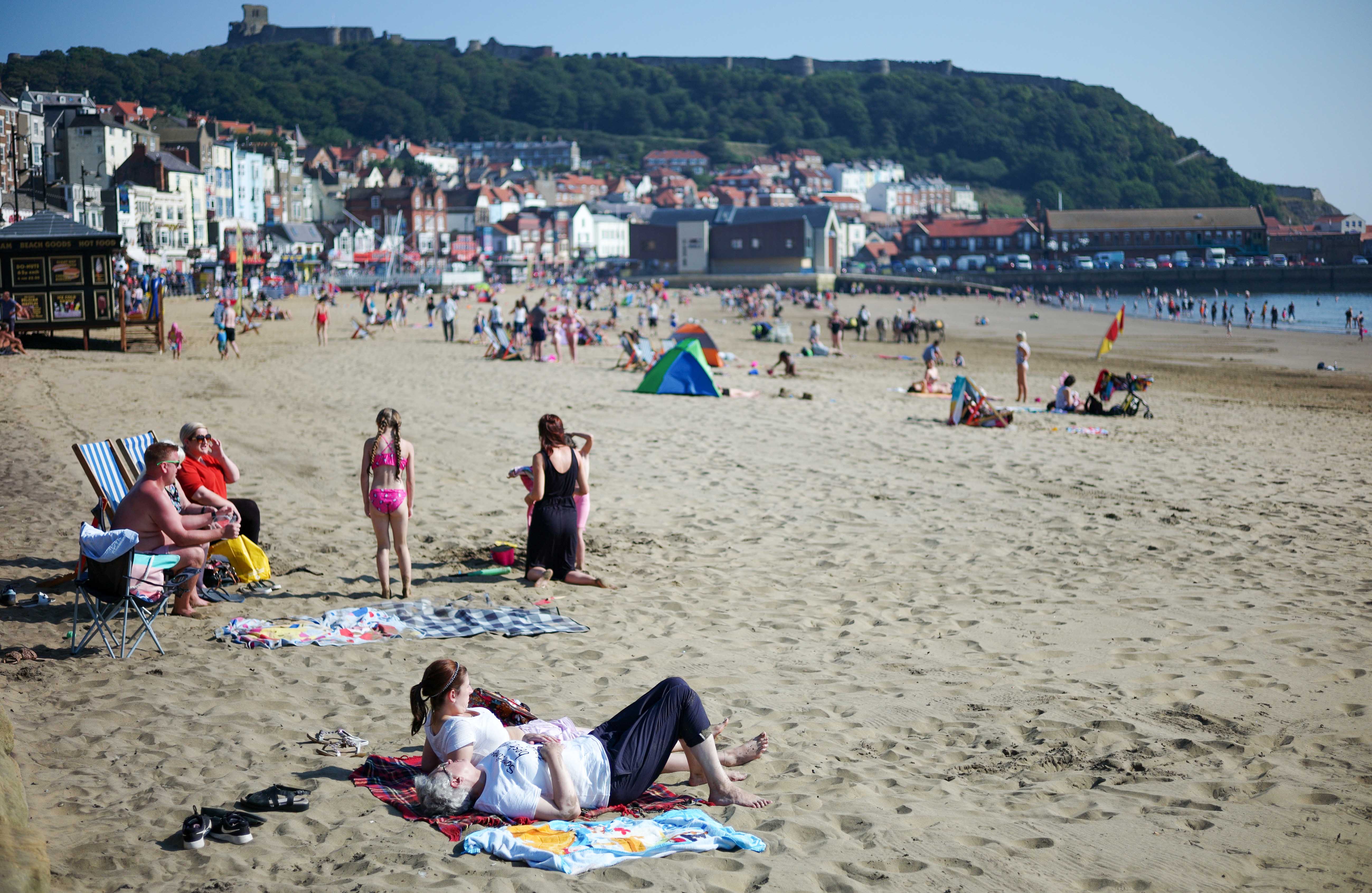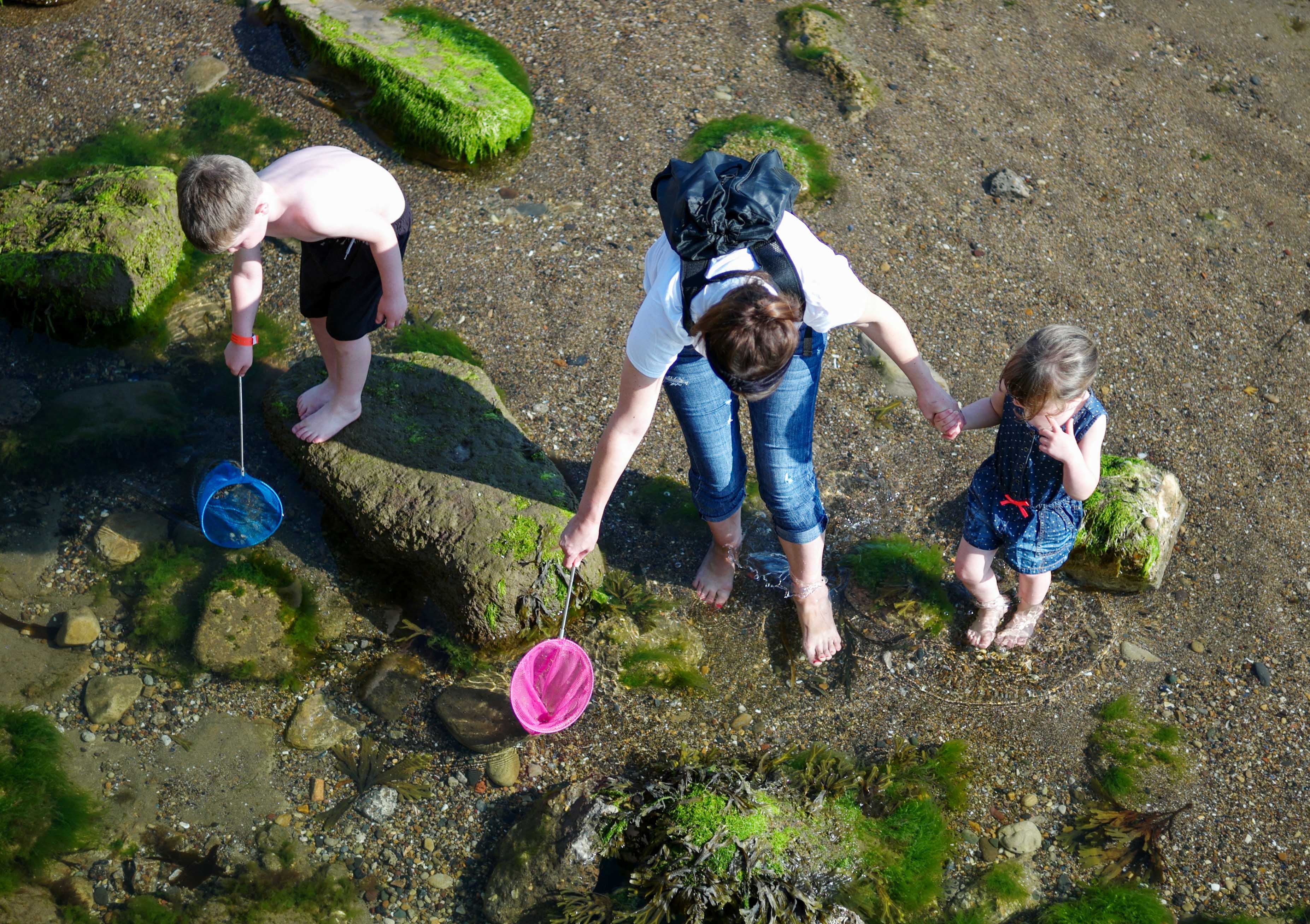Last resorts: The seaside towns fighting to show they’re more than just relics
Once hotspots for British holidaymakers, seaside towns fell out of favour when affordable package holidays took over. With staycations set to rise in popularity, there’s much work to do, writes Sean Smith


From the Victorian era to the 1950s, seaside resorts prospered by attracting trainloads of holidaymakers looking for respite from mines, mills and factories. In their heyday, 5 million Britons surged to the coast, before Beeching’s notorious axing of rural railways started to stem that tide in the 1960s. But it was the affordability of package holidays abroad that really did it for our seaside resorts, slowly mothballing them into stranded relics of Britain’s industrial past.
If you want to understand the challenges faced by the country’s 169 coastal towns and villages today, try to visualise the UK’s political economy as a single human body with London as its beating heart pumping its lifeblood through arterial routes to the vital organs of its major towns and cities. Even when the economy booms, little of the new wealth created circulates out as far as the coastal communities, only tenuously connected by the capillaries of seasonal tourism and outdated transport infrastructure.
Hypothermia directs blood away from the body’s outer extremities to help its inner organs survive trauma and after a decade buffeted by the chill winds of austerity, frostbite has set in to the UK’s coastal economies.
In 2019 a parliamentary select committee published a report on “The Future of Seaside Towns”, steeped in the language of existential despair. Many seaside towns found themselves “at the end of the line”. The report concluded: “Their location on the periphery of the country places them on the periphery of the economy.” The select committee report documented towns in steep decline beset by the seasonality of poor quality, zero-hour jobs; summer months aside, employment prospects were poor to non-existent. According to the Department for Education disadvantaged students living in coastal areas achieved about three grades lower than those in cities. In families from the most deprived wards “worklessness” spanned generations.
Even though it was up against some stiff competition, a government report issued by the Office for National Statistics had designated Skegness the country’s most deprived seaside town in 2013. In the 2016 referendum on EU membership the “left behind” communities in the UK’s coastal towns embraced Vote Leave wholeheartedly, but Skegness trumped them all: 75 per cent voted to “take back control” as the Lincolnshire town was dubbed Brexit on Sea.
A 2005 study by the town council reported that for every two people aged 16 to 24 who left the town, three retirees settled there, sentimentally drawn in by their sepia-tinged childhood memories.
When Lydia Rusling accepted a role as head of economic development and tourism at East Lindsey borough council she set out to revive the fortunes of Skegness, by challenging nostalgia and reimagining the resort as much more than just a traditional bucket and spade destination.

And then the pandemic hit.
But in crisis there is opportunity and Rusling’s optimism is infectious.
She’s convinced that Skegness can build back better on a rising tide of post vaccination staycations as Britons fall back in love with the natural beauty of their coastline.
The £3.6bn Towns Fund was launched by the government at the end of 2020 as part of its plan to level up the regions. Councils in 101 of the UK’s most run-down regions were invited to make a play for £25m from central government if they could put together matched funding bids from external investors in the private sector.
On the fringes of the British Isles, Rusling and her bid-writing counterparts in Great Yarmouth, Blyth, Scarborough, Whitby, Barrow-in-Furness, Southport, Morecambe and Birkenhead, Kings Lynn and Workington anxiously await the impending make or break announcement that will tell them how much money they’ve been granted to kickstart regeneration in their local communities.

Rusling knows that “extending the season” is her top priority because the local economy only comes alive between the months of April and September – the briefest of windows bookended by a long, hard economic winter.
Reviving Skegness and making it viable as an all year round destination depends on convincing visitors that it’s a great base from which to explore the 50 miles of blue flag beaches that line Lincolnshire’s coast and by emphasising attractions that are less dependent on the Great British seaside holiday’s most fickle asset: sunshine.
Hypothermia directs blood away from the body’s outer extremities to help its inner organs survive trauma and after a decade buffeted by the chill winds of austerity, frostbite has set in to the UK’s coastal economies
Gibraltar Point is a nature reserve and an area of outstanding natural beauty popular with wildlife watchers. The North Sea Observatory draws in tourists with its stunning views and unusual architecture. For those interested in local history, Gunby Hall is a national trust treasure with an interesting story to tell. Impending government investment has encouraged Skegness Aquarium and the local RNLI to commit to plans to upgrade their visitor centres.
She knows that Skegness’ long-term survival depends on “making more of coastal connections” and she knows that the town’s coordination with Towns Fund bids in Grimsby, Mablethorpe and Boston will do much to determine Lincolnshire’s economic future.
Rusling knows the importance of using local commerce to attract new businesses, citing the adage: “Money comes to money.” She uses Lincoln’s resurgence since it became a fully fledged university town in the 1990s as an example. She saw first-hand how the influx of young creative people led to an investment domino effect where economic buoyancy restored a “sense of pride of place” in Lincoln’s community. She is determined to do the same for Skegness and puts me in touch with a local entrepreneur prepared to invest in the most uncertain of times.
Jo Hardy and her husband have secured planning permission for a 180-acre site where they plan to build not just a second holiday park but a commercial zone capable of housing a much needed petrol station, hotel and business centre.

Hardy’s Animal Farm is emblematic of a business that’s had to diversify to survive. After working in financial services in London, she relocated to the wide open spaces of Lincolnshire with her fiancé to help run his family’s arable farm and caravan park. Animal Farm has also become a popular tourist attraction for families with young children keen to interact with the livestock.
But Covid has hit hard. Although the furlough scheme has allowed the holiday park to hibernate, the nature of the business means that substantial overheads remain and Hardy expects a £200,000 loss of revenue for the current tax year.
She feels the tourist industry needs a timeframe and “government road map” for a recovery. Hardy reminds me that tourism has long been the fastest growing sector of the economy and she thinks it’s imperative that the government sees tourism as integral to the economy’s recovery as a whole.
When I ask what’s behind the confidence to build a commercial zone in such challenging times she says that’s she an “eternal optimist” and there’s two “selfish” reasons: the two young sons she’s currently trying to home-school during lockdown. If coastal communities are ever going to stop losing their next generation to the big cities she thinks there’s a responsibility on local business owners to “give back” and provide local opportunities for their children.

Lydia Rusling agrees. But at 40 miles from Lincoln and 20 miles from Boston, Skegness “suffers from the perception that it’s remote”. It has been very difficult to attract young professionals. Despite recruitment drives, the NHS struggled to attract medical staff to look after their ageing populations and schools struggled to fill vacancies, especially in key Stem subjects like maths and science.
She knows that improving digital infrastructure is a top priority to compensate for the town’s relative isolation. But Britain’s coastal towns have some of the poorest levels of broadband connectivity speeds in Europe.
£3.6bn
In January the government announced the Towns Fund as part of a plan to level up our regions
But Rusling is optimistic because local MP Matt Warman also happens to be the digital minister. Warman is a former tech journalist who recently declared war on “the unacceptable digital divide” that’s limiting the attractiveness of coastal areas to new investment and promised that “broadband will be the bedrock of our levelling up agenda”. Warman has established a target that 80 per cent of the UK will have access to superfast broadband connections of 1 gigabit per second.
A hundred miles north in Scarborough, Richard Flinton, chief executive of North Yorkshire County Council, is also convinced that improving broadband and mobile connectivity is the key to creating diverse local economies that reduce employment seasonality.
Flinton’s team are working closely with central government to land a devolution deal that could see North Yorkshire become a single unitary council by May 2022. It’s hoped that devolution could bring £2.4bn worth of investment to the local economy.

Of that, £540m would be allocated to upgrading broadband and mobile phone connectivity. Although some of the new funding would also be used to dual Scarborough’s A64 connection with York, Flinton knows that superfast broadband and mobile connectivity matters even more.
He thinks Scarborough is “more than just a tourist destination” and has the potential to appeal to entrepreneurs and the new army of workers in the knowledge economy freshly emboldened to set up their home offices anywhere.
We speak on the day the government announced severe restrictions on foreign travel and the need for visitors to quarantine. Like Rusling, he’s similarly upbeat and senses that the current crisis is an “opportunity for opportunism”. Locally born and bred, he’s proud of Scarborough and thinks it’s a “well placed beautiful town with many natural attractions” and that it’s also likely to benefit from the steep rise in staycations in the coming years.
Flinton is also coordinating the Covid response as chair of North Yorkshire’s Local Resilience Forum. He acknowledges that Scarborough will need to reimagine its town centre because of the way that internet shopping and the economic crisis has hollowed out the high street: “Losing brands like Debenhams and Topman will hurt but the council has plans to redefine the high street more around culture and away from retail.”
He thinks Scarborough with its handsome Victorian and Edwardian housing stock could become a northern hub for art and culture to rival St Ives in Cornwall.

But it’s the pockets of chronic educational underachievement that concern him most and he believes that only a focus on the pre-school readiness of disadvantaged infants can bridge attainment gaps and enable all parts of the community to become full economic participants.
He enthuses about an early years literacy project in nearby Whitby and introduces me to one of its chief advocates, Sir Martin Narey, chair of the North Yorkshire Coast Opportunity area.
Sir Martin was knighted “for services to vulnerable people” after a distinguished career as director general of the Prison Service followed by a stint as CEO of children’s charity Barnardos. Both roles revealed to him the extent to which deficits in early years literacy blighted futures and ruined lives.
He is a passionate advocate for North Yorkshire’s Grow and Learn project and explains that 50 per cent of infants in the North Yorkshire coastal towns of Filey, Scarborough and Whitby lack the language skills needed to start school.
The project is built on compelling educational research suggesting that unless early years language deficits are addressed, the education system actually becomes an agent for exacerbating social inequality.

In a form of social distancing that lasts a lifetime, infants from more literate homes retain an ever accumulating advantage over their disadvantaged peers because their enhanced word recognition enables them to contextualise and absorb more of the new words they encounter. As they learn to read, their vocabularies start expanding at an exponential rate, outstripping the development of their disadvantaged peers.
Poverty of language in early years development is a reliable predictor of actual poverty in later life. It’s a convincing argument that goes a long way to explaining the generationally entrenched educational inequalities in the UK’s coastal towns.
Grow and Learn initiatives have included whole families learning nursery rhymes together and a “ditch the dummy” campaign to encourage children to talk. Up to 30 primary schools in the Scarborough District have employed speech and language therapists in school to give additional timely support to children with language difficulties.
Although Sir Martin admits he is not a natural supporter of the current party of government he believes their “levelling up agenda is sincere.” He also backs thinktank ideas to move government departments out of the Whitehall echo chamber, but thinks it’s “too easy to relocate them in cities like Birmingham and Manchester”.
Transplanting an entire government department and its attendant professional class to places like Scarborough would not only bring a much needed infusion of “new blood” to coastal areas but crucially offer potential career paths to the talented young people who feel they have to leave their communities to succeed.
He thinks that if the people running the country were to see it from a coastal vantage point, they would soon develop the new perspective that Rishi Sunak has acknowledged is necessary for governments to “make decisions differently in future”.
Ten per cent of the UK population live in coastal communities and 100 of the 120 parliamentary constituencies with access to coastlines voted to leave the European union. Those at Britain’s outermost edges have already had an enormous influence in determining the next chapter of our island story and are likely to have little patience with any government that continues to treat them as afterthoughts in the political economy.
Flinton’s attempt to land a transfer of power deal for North Yorkshire sounds like “taking back control” in its most literal sense and it’s hard to see how “levelling up” will be achieved without regional devolution becoming one of the defining political issues of our generation.




Join our commenting forum
Join thought-provoking conversations, follow other Independent readers and see their replies
Comments